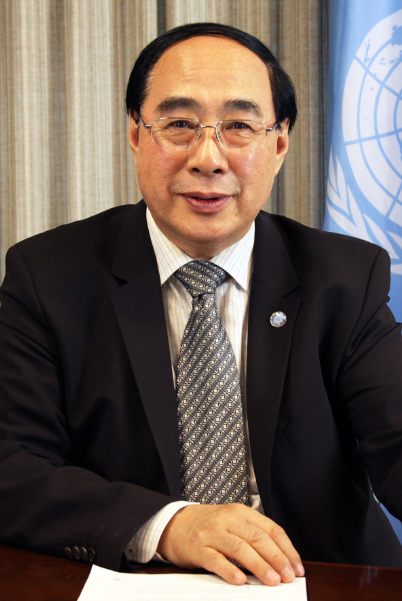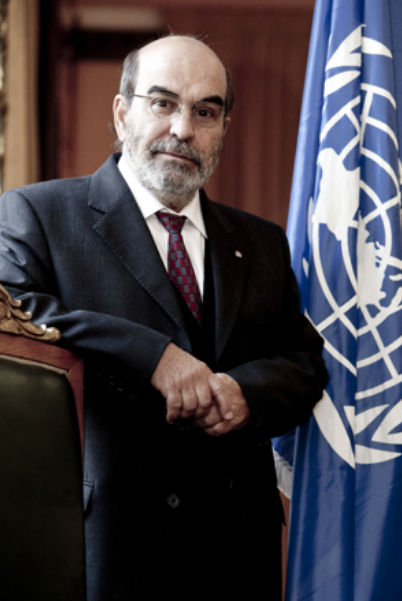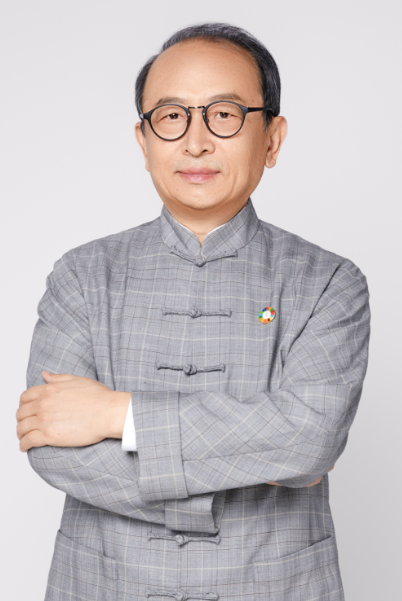Your current location:About WEF > Board of Trustees

ChairmanWu Hongbo
Wu Hongbo graduated from Beijing Foreign Studies University. Since 1970s, Mr. Wu has been extensively engaging in a broad range of diplomatic issues and held various high-ranking positions. He served as China's Chief Representative of Sino-British Joint Liaison Group, Deputy Director-General of the Department of West European Affairs of the Chinese Ministry of Foreign Affairs, Director-General of the Department of Hong Kong, Macao and Taiwan Affairs of the Chinese Ministry of Foreign Affairs, Chinese Ambassador Extraordinary and Plenipotentiary to the Philippines, Director-General of the General Office of the Chinese Ministry of Foreign Affairs, Assistant Foreign Minister, and Chinese Ambassador Extraordinary and Plenipotentiary of to the Federal Republic of Germany. Mr. Wu Hongbo was appointed United Nations Under-Secretary-General for Economic and Social Affairs in August 2012. During his tenure, he led the global consultation process of the 2030 Agenda for Sustainable Development, which culminated in the adoption of the Sustainable Development Agenda and its 17 goals on the part of the 193 nations of the UN General Assembly at the Sustainable Development Summit held in September 2015.
Senior AdvisorJose Graziano da Silva
Jose Graziano da Silva, PhD in Economic Sciences at Campinas State University (UNICAMP), has been a teacher and professor for more than 30 years and published more than 25 books on rural development, food security, and agricultural economy. Dr. Graziano began to serve as Director-General of the Food and Agriculture Organization of the United Nations (FAO) in 2012. Having been focusing his work on five issues ensuring food security, increasing productivity and promoting the sustainable use of natural resources, reducing rural poverty, improving food systems, and enhancing resilience, he had FAO shaped into a down-to-earth knowledge organization with his leadership. In 2015, Graziano was re-elected as Director-General of FAO. During his tenure, his "Fome Zero" policy was recognized by the international community as one of the 17 Sustainable Development Goals of the United Nations. He has also made definitive contributions to global development by leading the efforts on reducing rural poverty, eliminating hunger and preventing conflicts, mitigating the effects of climate change, and ensuring food food security.


Director-General Liu Guangwei
Liu Guangwei, director,Research Center for Shiology, Renmin University of China. the founder of Shiology, the director-general of World Shiology Forum, the initiator of global governance of world Shiance issues, the president of Beijing Shiology Research Institute.
Research fields: shiance issues, holistic management of shiance issues, shiology science system construction.
He has been working in the field of shiances such as food planting, food farming, food processing, food cooking, and food fermentation for more than 40 years. He has launched shiance media, educational institutions, and social organizations, organized various shiance public interest activities, and published more than 20 books. Having been continuously exploring the root causes and ultimate solutions to shiance issues in his long-term practice.
Liu Guangwei has discovered the non-holistic nature of the human shiance knowledge, and therefore constructed a whole system of shiance knowledge and a theoretical system, to provide the global public goods for completly solving human shiance issues.
